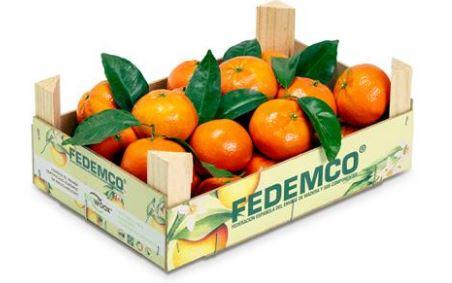Wooden packaging performs better than cardboard in a life cycle assessment, particularly in terms of greenhouse gas emissions, ecotoxicity, food safety and water consumption.
Wooden packaging has a lower environmental impact than its cardboard counterpart. At least that is the conclusion of a life cycle assessment carried out by the consultancy firm Géminis Tools in collaboration with researchers from the Information and Communication Technologies against Climate Change Group at the Universitat Politècnica de València.
The LCA compared the performance of the two types of disposable packaging for the refrigerated transport of 1,000 tonnes of mandarins by lorry between Valencia and Germany, a distance of 2,000 km.
The higher energy consumption required to recycle paper and cardboard, the greater water consumption in the recycling and manufacturing process and the use of chemicals during recycling would make wooden packaging more attractive in terms of emissions, water consumption, water eutrophication and soil acidification, the study concluded.
Fedemco, the Spanish association of wooden packaging and its components, explained: "The use of wooden packaging is a great advantage in the refrigerated transport of fruit and vegetable products, as it better preserves the characteristics of the transported product due to its resistance and strength. The physical and mechanical properties are also characterised by the protection that wooden packaging offers the product against changes in the hygrothermal conditions in the environment. The use of wood in this type of packaging promotes sustainable forest management and the rural economy, especially in the Mediterranean forests where the raw materials, mainly pine and poplar, come from."
Source: fruitnet.com


